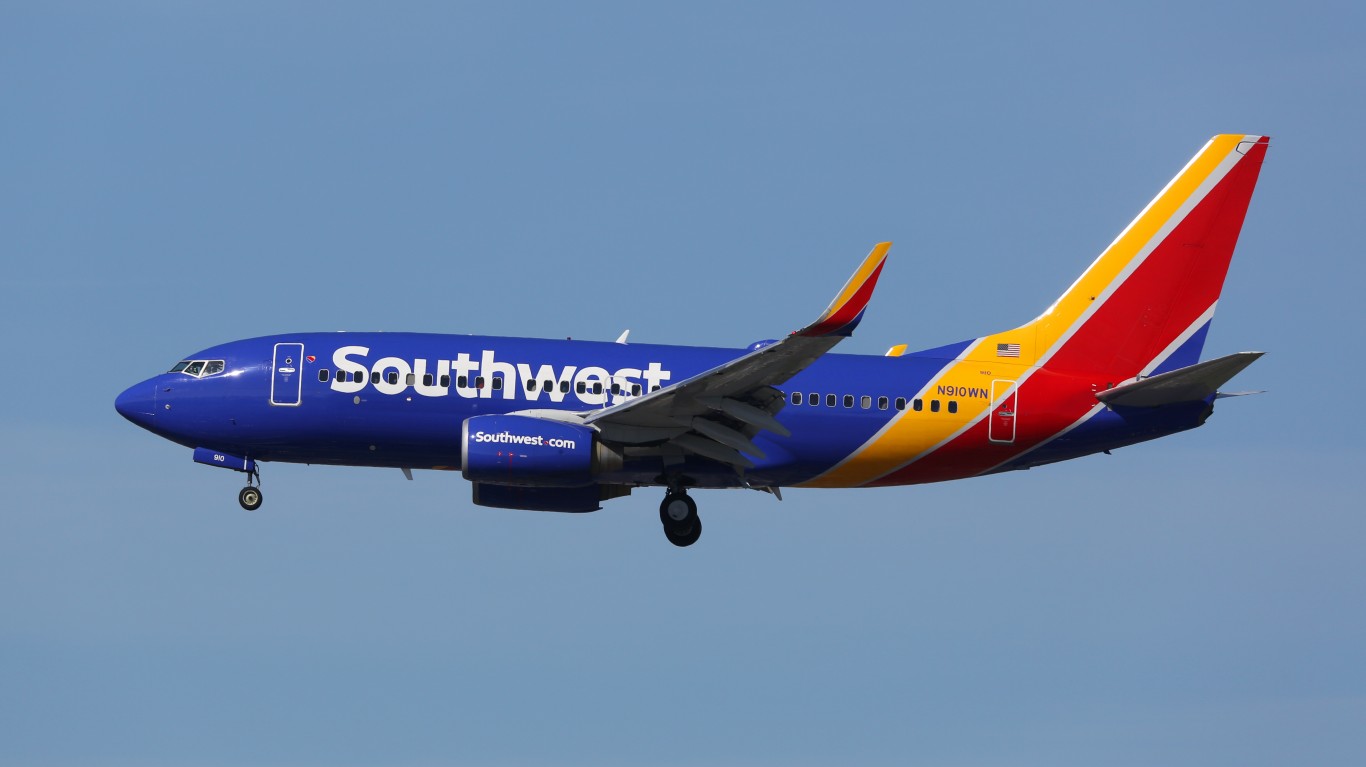Transportation
COVID-19 Batters Southwest Airlines Q1 Results; Q2 Will Be Worse

Published:

Southwest Airlines Corp. (NYSE: LUV) reported first-quarter 2020 results before markets opened on Tuesday. The low-cost carrier reported an adjusted earnings per share loss of $0.15 on operating revenues of $4.23 billion. In the first quarter of 2019, the airline posted earnings per share (EPS) of $0.70 on revenues of $7.75 billion. Analysts were expecting Southwest to post a per-share loss of $0.41 on revenues of $4.42 billion.
Earlier this month, Southwest reached an agreement with the U.S. Treasury to receive about $3.3 billion from federal CARES Act funding. Of the total, $2.3 billion reflects direct aid and $948 million is an unsecured 10-year term loan.
Southwest also announced this morning that it has begun a secondary share offering of 55 million new shares of common stock and a $1.0 billion offering of convertible senior notes due in 2025. Both offerings are underwritten, and the underwriters have an overallotment option on an additional 8.25 million shares and up to $150 million in additional principal on the convertible notes.
The recent market decline in fuel prices reduced Southwest’s first-quarter 2020 fuel and oil expenses by approximately $80 million compared with original projections in January 2020. Economic fuel costs totaled $1.90 per gallon in the quarter, compared to $2.15 per gallon in the same period last year. The grounding of Boeing’s 737 Max, the company’s most fuel-efficient aircraft, had a negative effect on fuel efficiency, but that effect was more than offset by flight cancellations and load factor declines.
CEO Gary Kelly said:
In late February, we began experiencing a precipitous drop in passenger demand and bookings due to the novel coronavirus COVID-19 pandemic, resulting in a first quarter 2020 net loss. The U.S. economy has been at a standstill, and the current outlook for second quarter 2020 indicates no material improvement in air travel trends. … [W]e have significantly reduced our published flight schedules through July 2020. In addition, we have taken swift action to significantly reduce cash burn.
The company has reduced executive salaries, canceled or deferred capital spending projects, and taken other steps to reduce full-year operating costs by $2 billion and lower capex by $1 billion. Southwest plans to maintain service to all domestic destinations at least through the end of September.
Southwest has removed the 737 Max from its flight schedule through October and said the company is “in the process of revising our aircraft order book with Boeing and will continue partnering with Boeing on a sensible delivery schedule”:
In light of the current environment, Boeing agreed to an arrangement allowing the Company to take delivery of no more than 48 aircraft through December 31, 2021. The Company is currently planning to take delivery of less than the 27 MAX aircraft previously expected from Boeing in 2020, and is evaluating the need to temporarily remove or retire additional aircraft from its fleet.
Southwest did not offer guidance but did say that it expects the effects of the COVID-19 pandemic to be “much more” significant than the first-quarter effects.
Shares traded down about 0.5% in Tuesday’s premarket session, at $28.96 in a 52-week range of $28.80 to $58.83. The 12-month consensus price target on the stock is $43.06. Southwest paid its quarterly dividend of $0.18 per share for the quarter but has now suspended both the dividend and its stock buyback program until further notice.
After two decades of reviewing financial products I haven’t seen anything like this. Credit card companies are at war, handing out free rewards and benefits to win the best customers.
A good cash back card can be worth thousands of dollars a year in free money, not to mention other perks like travel, insurance, and access to fancy lounges.
Our top pick today pays up to 5% cash back, a $200 bonus on top, and $0 annual fee. Click here to apply before they stop offering rewards this generous.
Flywheel Publishing has partnered with CardRatings for our coverage of credit card products. Flywheel Publishing and CardRatings may receive a commission from card issuers.
Thank you for reading! Have some feedback for us?
Contact the 24/7 Wall St. editorial team.